Keller, a leading painter in Cleveland, was born at sea, off Nova Scotia on April 3, 1869. His earliest training was in Karlsruhe, Germany under Hermann Baisch (1846-1894), then at the Cleveland School of Art, the Cincinnati Fine Arts Academy and the Art Students League in New York. The young artist was an apprentice at the W. J. Morgan Lithograph Company, also in Cleveland. Keller polished off his art instruction at the Munich Academy (1899-1902) with Heinrich Johann Zügel (1850-1941), chiefly an animal painter. There he would have rubbed shoulders with Walt Kuhn. At the end of his stay in Munich, he won a silver medal. His watercolor, Santa Maria della Salute, in a private collection, is in the tradition of John Singer Sargent. According to Arthur Covey, Keller was back in Munich in 1904-05, and he mentioned a painting called Storm-frightened Animals (Weimer, 1940, pp. 570-572). In Munich, Keller also met William Sommer, a future Cleveland post-impressionist.
Back in America, Keller immediately found a job at the Art Institute of Pittsburgh then he taught at his alma mater, the Cleveland School of Art until 1945. In Cleveland, remarked Keller (in Milliken, 1950), there was "a kind of pale, timid, watered Impressionism" and he reacted against it. Charles Burchfield, one of his more famous students, studied at the Cleveland School of Art between 1912 and 1916, when Keller was studying Asian art and showing modernist tendencies, having surpassed impressionism. Keller was also an enthusiast of Diaghelev's Ballets Russes, which he saw on their American tour. He studied the psychology of color with Dr. J. J. R. Macleod and underwent Cézanne's influence. Also at that time, Keller exhibited two works at the Armory Show — Wisdom and Destiny (Cleveland Museum of Art) and The Valley (unlocated). The former shows Keller's more traditional, intellectual side, with its classical allegorical figures in a stormy landscape. The theme was inspired by one of Maurice Maeterlinck's essays. Keller's modernism is revealed in the contemporary watercolor entitled Sunflower, in the same museum, which recalls some of the bravura of the free brushwork of John Marin. Keller was part of a group called the Cleveland Independents.
The list of Keller's exhibition activities is truly amazing — from local venues in Cleveland to Chicago (including a special show of his wash drawings in May of 1920), Pittsburgh, Philadelphia, and New York, his works were on view year by year. The Cleveland Museum of Art presented him with awards on numerous occasions and in 1939, he was elected to the National Academy of Design. That year, his painting Circus Day was on display at the Golden Gate International Exposition in San Francisco, while at the New York World's Fair in 1939, his Horse Barn appeared in the exhibition of contemporary artists. Here the horses are closer to those of German Expressionist Franz Marc than to those of Degas. The Whitney Museum has Keller's charcoal and watercolor, Bird Rock, California (1925). The painter died in San Diego, on August 3, 1949.

source: askart.com
Works by Henry George Keller

Experiment in Distortion Henry George Keller
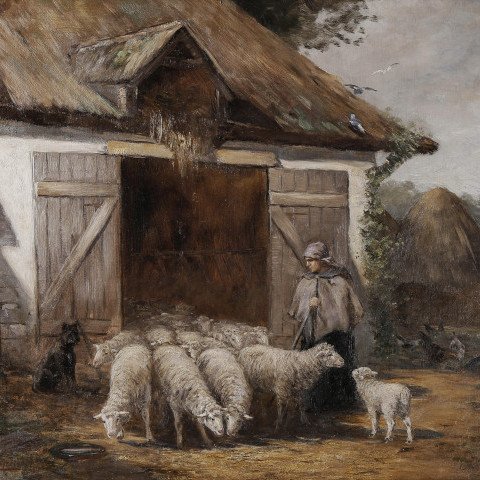
Shepherdess with Sheep and Dog, Munich, 1891 Henry George Keller
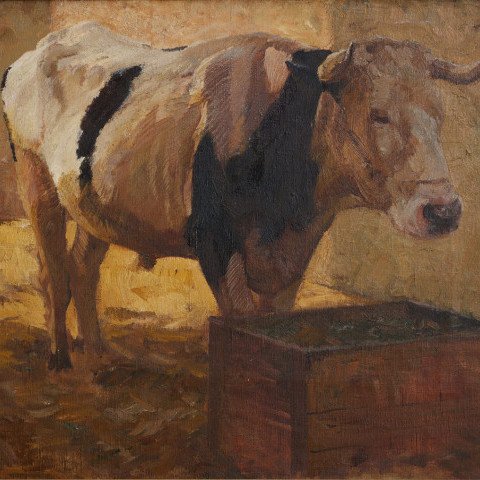
Cattle Series Study, 1901 Henry George Keller

The Bug, c. 1910 Henry George Keller
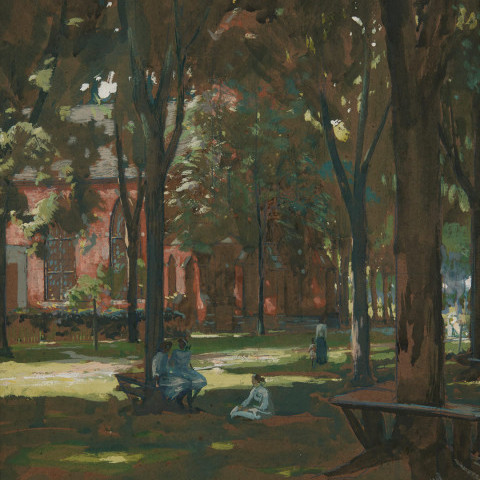
Ladies in a Church Yard Henry George Keller
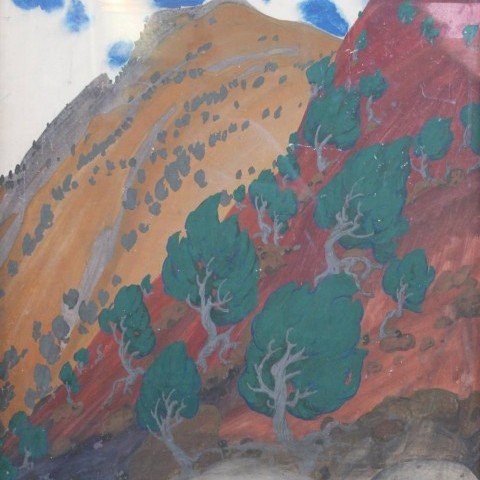
SOLD
Mountain Landscape, Henry George Keller
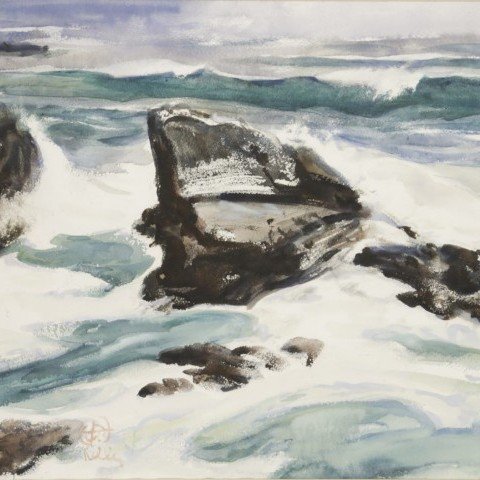
SOLD
California Coast Henry George Keller
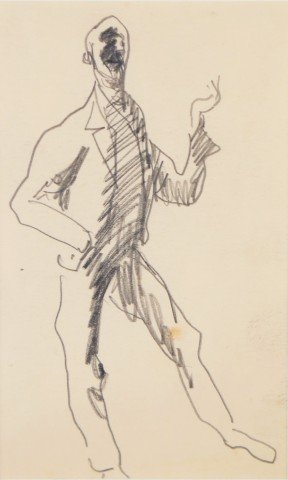
SOLD
A Connoisseur Henry George Keller
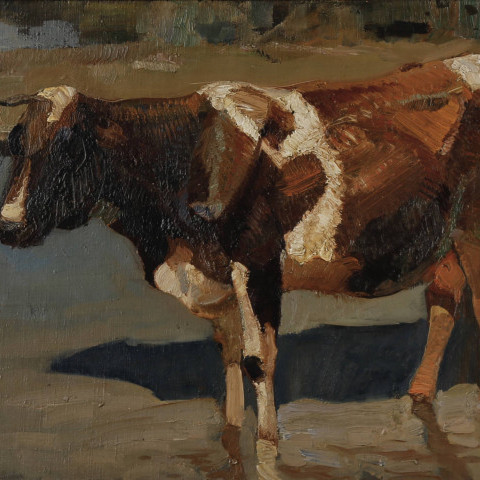
SOLD
Handsome Cow Henry George Keller

SOLD
Morocco, c. 1925 Henry George Keller
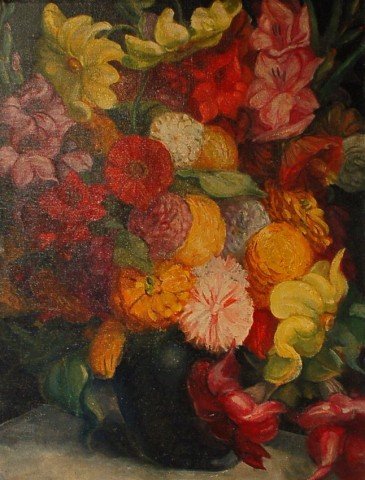
SOLD
Still Life, Summer Flowers Henry George Keller
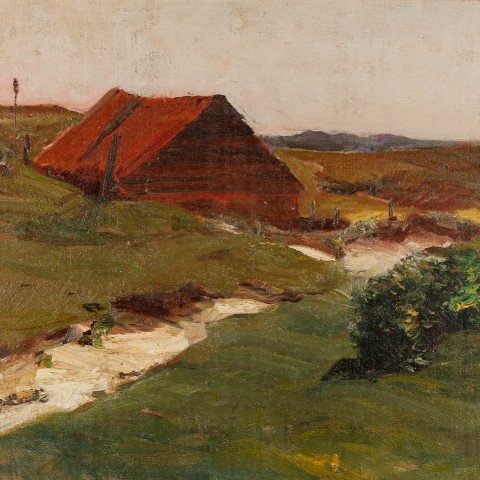
SOLD
Near Maassluis Henry George Keller
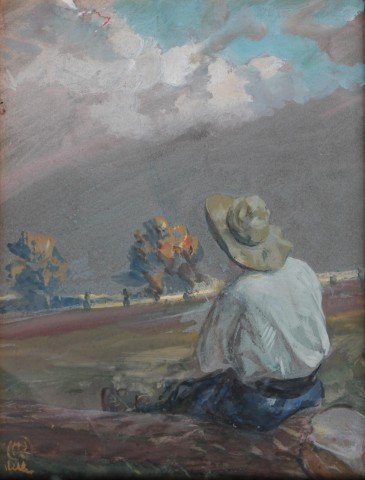
SOLD
The Kite Flyer Henry George Keller
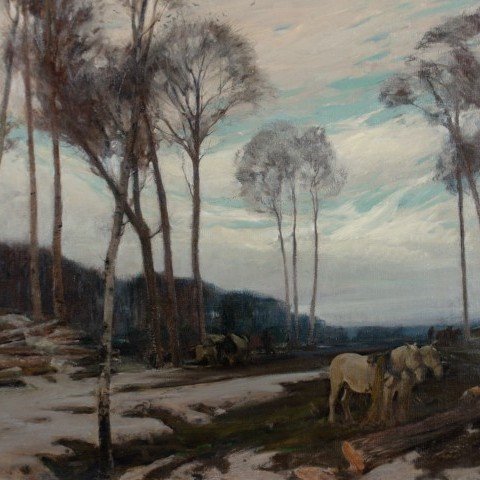
SOLD
Logging Along the Vermilion River, 1910 Henry George Keller
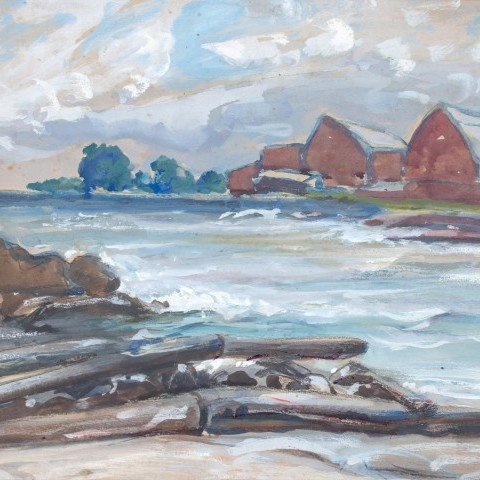
SOLD
Fish Houses, Huron Henry George Keller
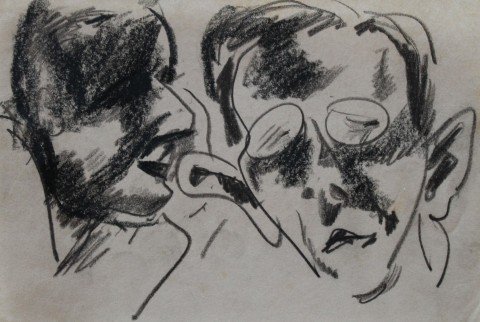
SOLD
An Earful Henry George Keller
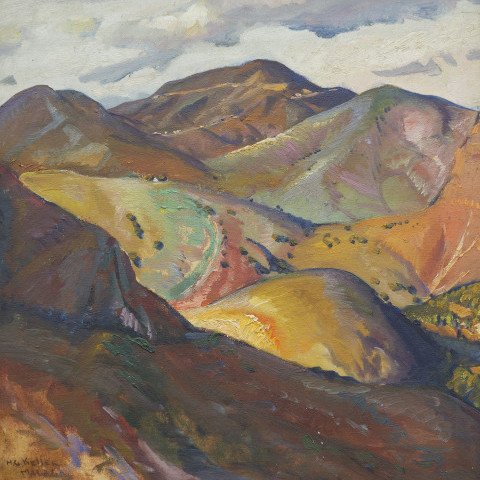
SOLD
Hills Near Málaga, Spain, c. 1920 Henry George Keller
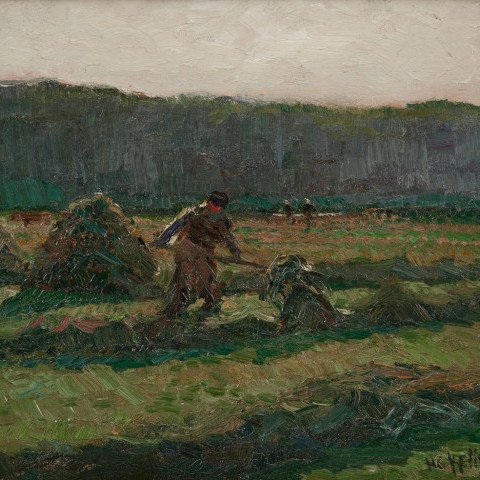
SOLD
Haystacks Henry George Keller

SOLD
Andalusian Villascape, ca. 1925 Henry George Keller
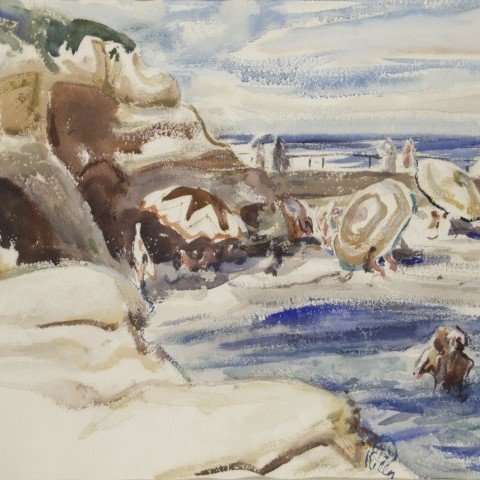
SOLD
California Beach with Bathers Henry George Keller
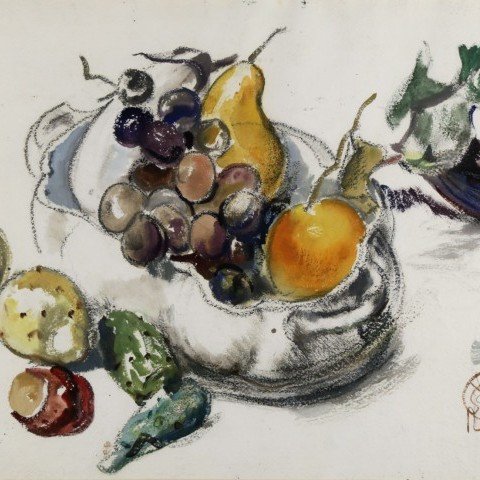
SOLD
Still Life, Bowl of Fruit Henry George Keller
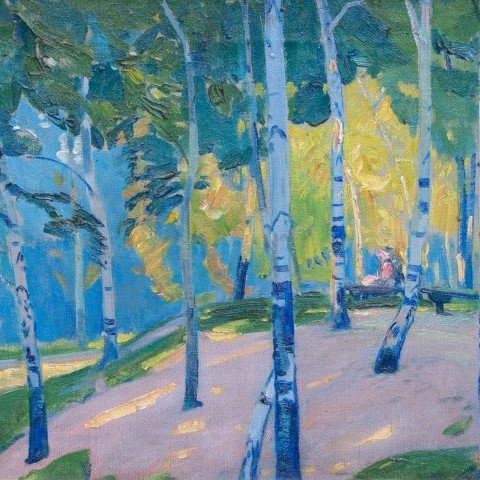
SOLD
A Sunlit Clearing, c. 1930 Henry George Keller
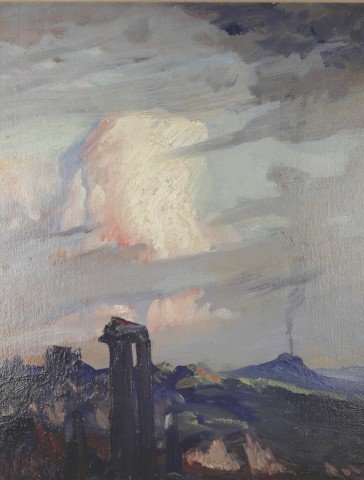
SOLD
Romantic Landscape, View of Mt. Etna from Taormina, 1945 Henry George Keller
